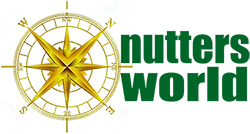Titbits and News from the Mare Nostrum
Archaeologists Discover Oldest Roman Forum in Iberian Peninsula
A team of archaeologists in Zaragoza, Spain, have discovered the oldest Roman forum found in the interior of the Iberian Peninsula. The forum is located at the site of La Cabaneta, a former Roman settlement in the municipality of El Burgo de Ebro.
By Nick Nutter on 2023-09-14 | Last Updated 2025-05-20 | Titbits and News from the Mare Nostrum
This article has been visited 3,119 times

La Cabañeta Yacimiento Arqueológico
The forum is believed to have been built in the last third of the 2nd century BC, making it one of the earliest Roman forums in the region. It is a rectangular structure measuring approximately 50 meters by 30 meters, and it is thought to have been used for public gatherings, commercial transactions, and legal proceedings.
Do you enjoy my articles? For your reading pleasure, this website does not carry third party ads. You could help me write more articles by buying me a cup of coffee.
The forum is in a good state of preservation, and the archaeologists have been able to identify a number of features, including a central courtyard, a raised platform, and a series of columns. They have also found a number of artifacts, including pottery, coins, and jewellery.
The discovery of the forum is a significant archaeological find, and it is expected to shed new light on the early development of Roman civilization in the Iberian Peninsula.
Quote from archaeologist Borja Diaz
"This is a very important discovery," said Borja Diaz, a researcher from the Institute of Heritage and Humanities (IPH) of the University of Zaragoza who is co-directing the excavation. "It is the oldest Roman forum found in the interior of the Iberian Peninsula, and it provides us with a unique glimpse into the life of a Roman city in this region."
Experts believe that the square, of monumental dimensions, was part of an unknown city razed to the ground in 70 B.C. during the Sertorian civil war.
The Sertorian War
The Sertorian War was a bloody military conflict that took place in Hispania, between the years 82 B.C. and 72 B.C. and between the two factions that disputed power in Rome: the populares of Quintus Sertorius and the optimates of Quintus Caecilius Metellus and Gnaeus Pompeyus Magnus. The various peoples that inhabited the Iberian Peninsula at that time took part on one side or the other due to the dangers that threatened them, while trying to avoid the destruction of their settlements or the murder of their compatriots. And this was exactly what happened to a city located in the current municipality of El Burgo de Ebro (Zaragoza, Spain), which was completely destroyed around 70 B.C., just two generations after being built. The destruction of a city could be total if its people had chosen the wrong side. The name of this Roman city on the banks of the Ebro remains unknown, although some experts believe that it could be Castra Aelia, a second line Roman camp that became a city with a huge forum, after the defeat of the Celtiberians in Numancia.
The future of the site
The archaeologists are continuing to excavate the site, and they hope to learn more about the forum and the surrounding settlement. They also hope to open the site to the public in the future.
"This is a very exciting discovery, and we are eager to learn more about it," said Diaz. "We hope that the site can be opened to the public in the future so that everyone can enjoy it."
Do you enjoy my articles? For your reading pleasure, this website does not carry third party ads. You could help me write more articles by buying me a cup of coffee.
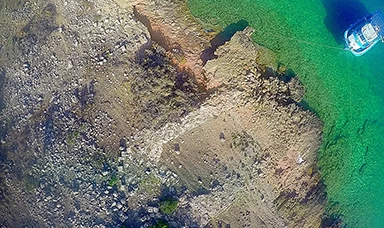 Dana Island, oldest ancient shipyard
Dana Island, oldest ancient shipyard A Bronze Age Courier Service
A Bronze Age Courier Service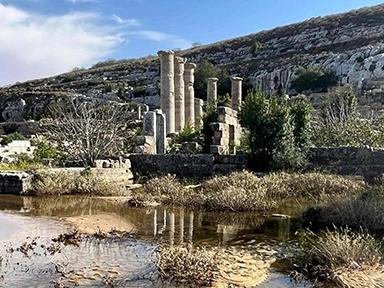 Cyrene's Lost Treasures
Cyrene's Lost Treasures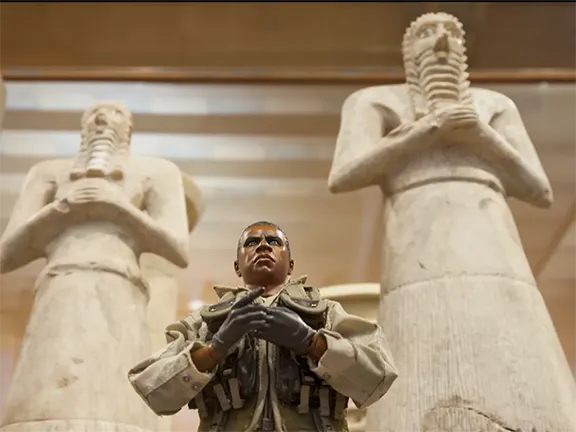 The Invisible Enemy
The Invisible Enemy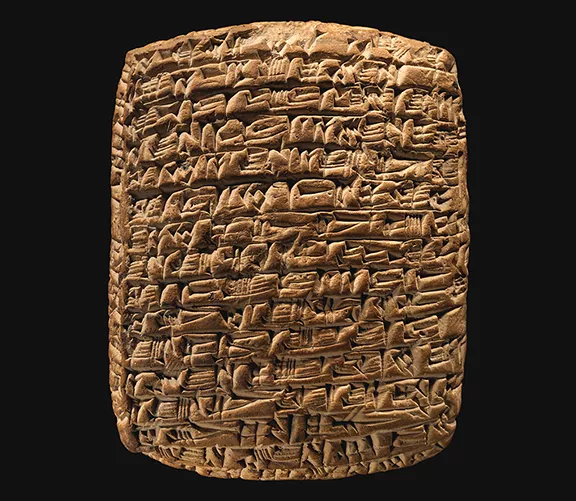 The World's First Company
The World's First Company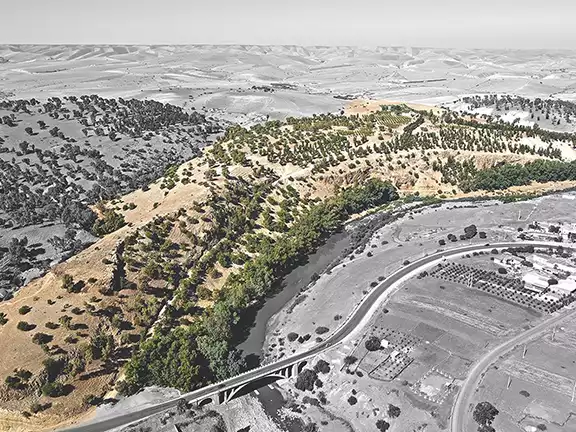 The Copper Age Site of Oued Beht
The Copper Age Site of Oued Beht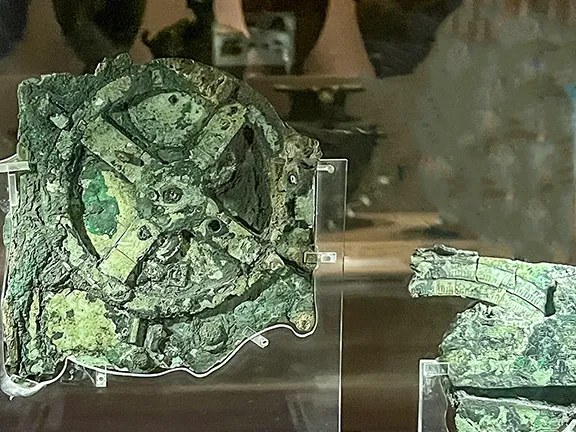 How the Antikythera Mechanism Works
How the Antikythera Mechanism Works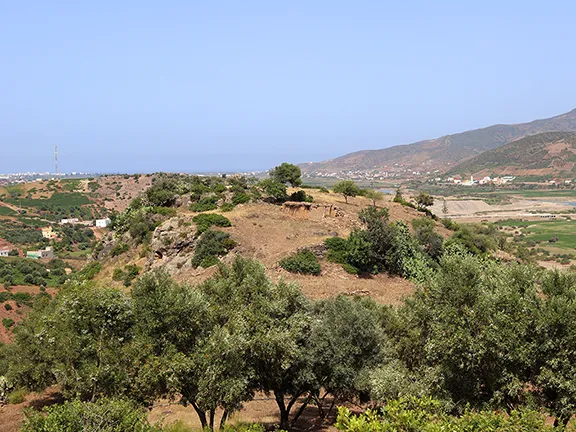 Kach Kouch and Iberia
Kach Kouch and Iberia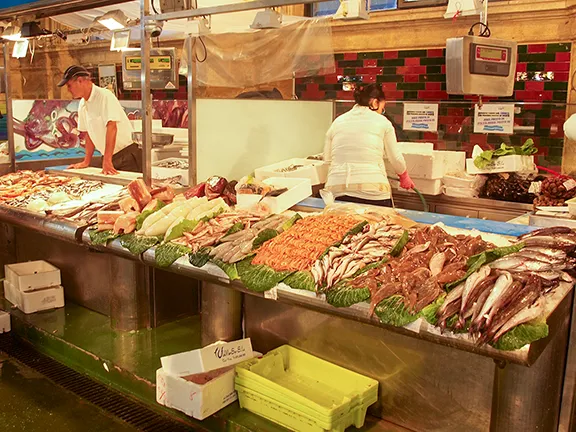 Mediterranean Diet Evolution
Mediterranean Diet Evolution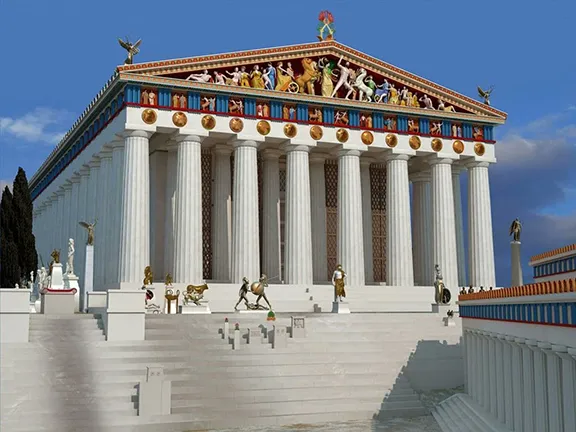 Hidden Colours of Ancient Statues
Hidden Colours of Ancient Statues Cleopatra: Egypt's Last Pharaoh
Cleopatra: Egypt's Last Pharaoh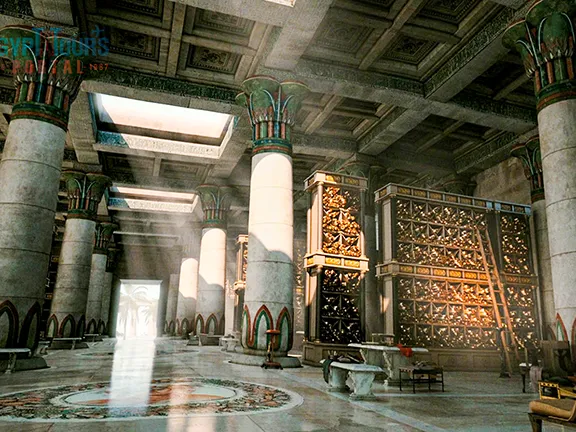 Alexandria Library's True Fate
Alexandria Library's True Fate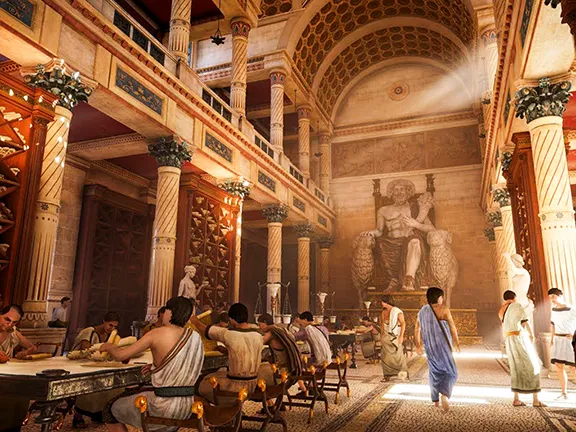 Six Great Ancient Libraries
Six Great Ancient Libraries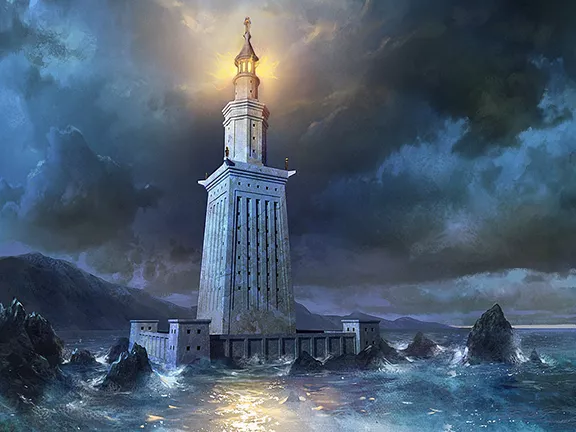 Ancient Greek Technology
Ancient Greek Technology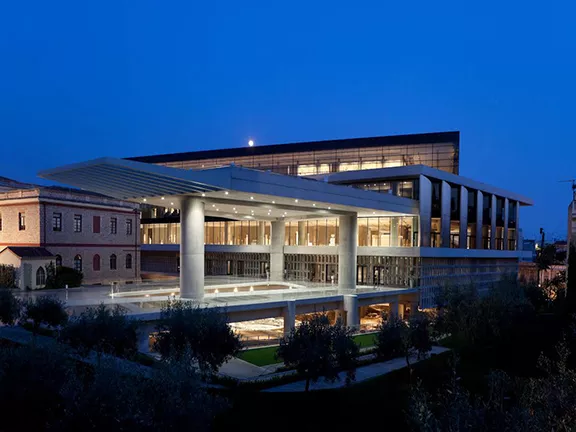 Broadening Horizons
Broadening Horizons The Nadītu Investors of Sippar
The Nadītu Investors of Sippar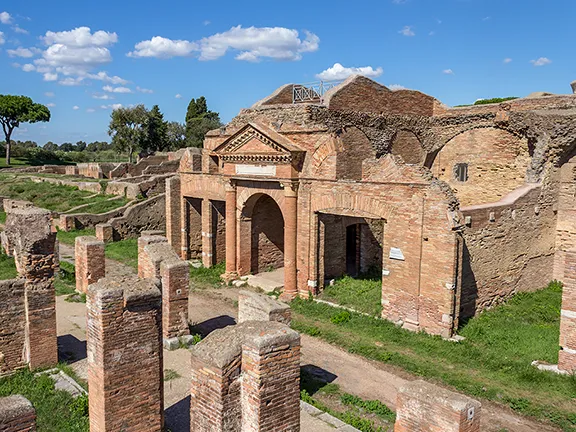 New light on Hadrian
New light on Hadrian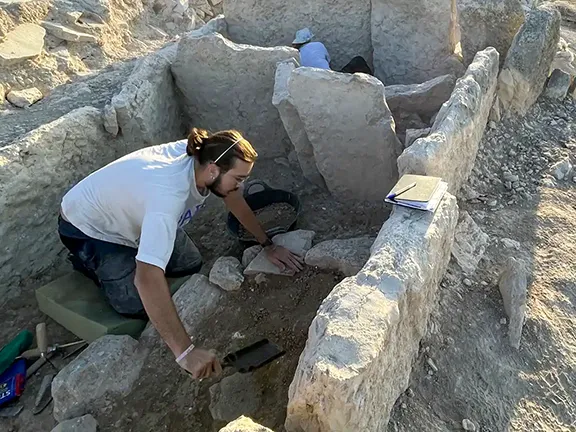 The Dolmens of La Lentejuela Teba
The Dolmens of La Lentejuela Teba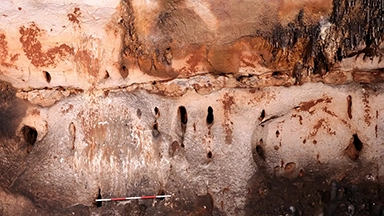 New Cave Art Discovery in Valencia region
New Cave Art Discovery in Valencia region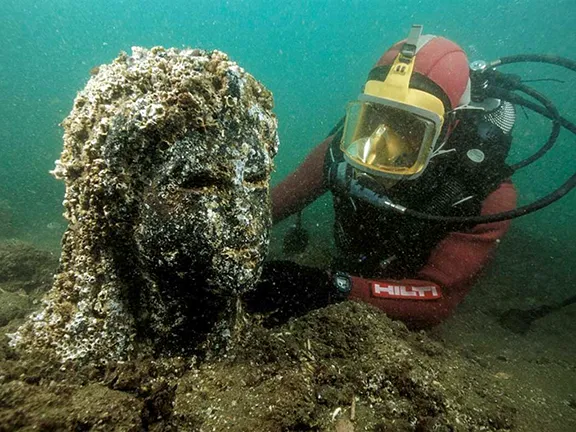 New Discoveries at Ancient Sunken City of Thonis-Heracleion
New Discoveries at Ancient Sunken City of Thonis-Heracleion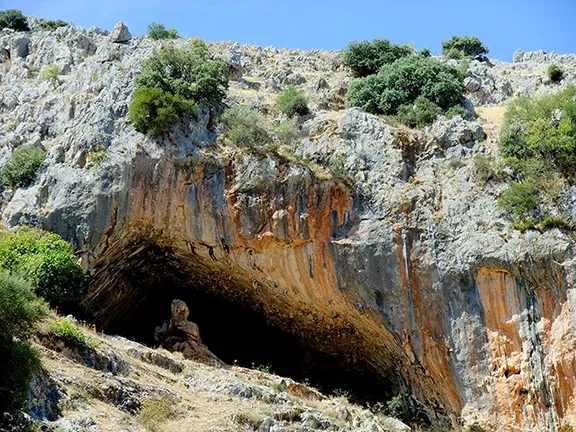 Europe's Oldest Shoes Found: 6,000-Year-Old Sandals Woven from Grass
Europe's Oldest Shoes Found: 6,000-Year-Old Sandals Woven from Grass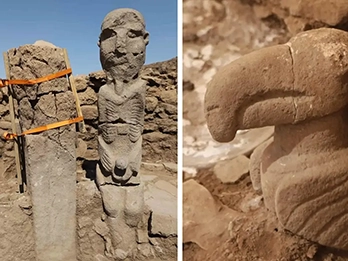 Discoveries at Gobekli Tepe and Karahan
Discoveries at Gobekli Tepe and Karahan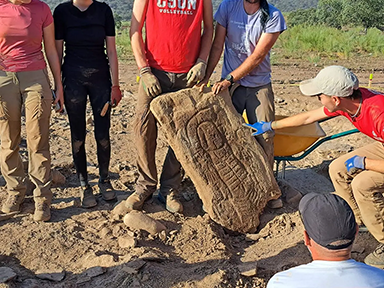 Decorated Stelae found in Canaveral de Leon, Spain
Decorated Stelae found in Canaveral de Leon, Spain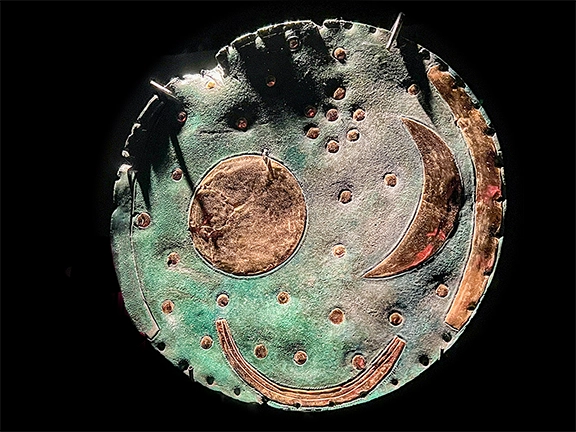 The Nebra Sky Disc: A Bronze Age Calendar
The Nebra Sky Disc: A Bronze Age Calendar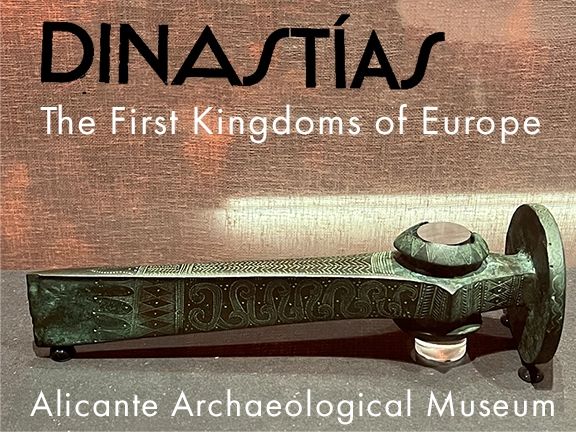 New Exhibition at the Archaeological Museum in Alicante
New Exhibition at the Archaeological Museum in Alicante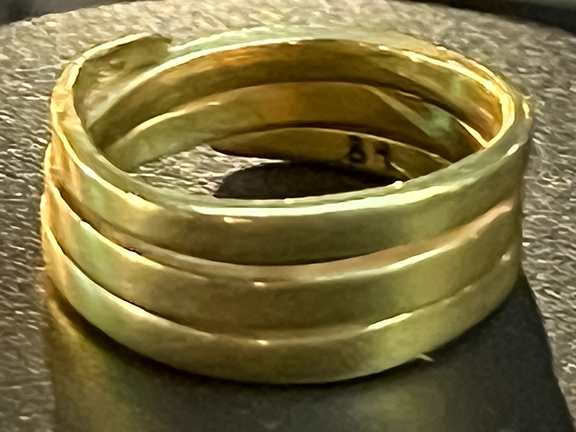 Bronze Age: A Golden Age for Jewellery
Bronze Age: A Golden Age for Jewellery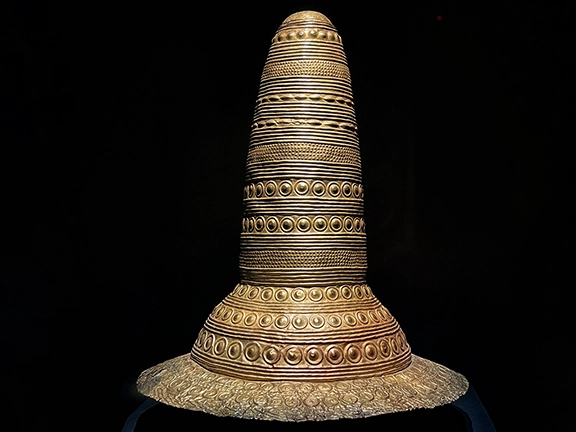 The Golden Hat of Schifferstadt
The Golden Hat of Schifferstadt